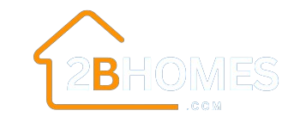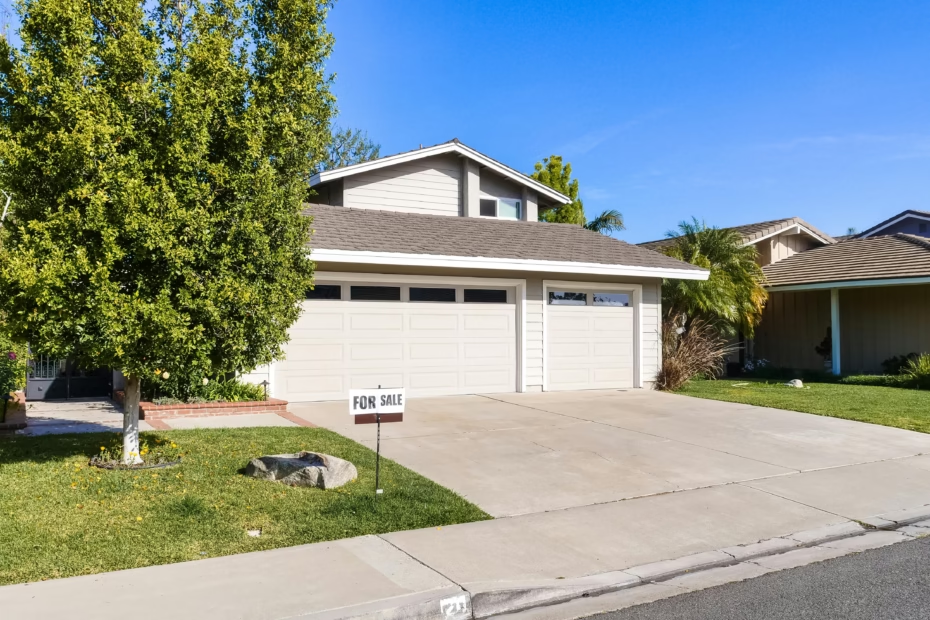You’ve decided it’s time to sell your home, and your Realtor suggests hosting an open house to attract potential buyers. But are open houses worth it? In this post, we’ll help you answer that question and decide if hosting an open house is the right move for your home.
“Hosting an open house can be a valuable tool in the right circumstances. It can generate interest and create buzz around a property, especially in areas with high demand and limited inventory,” says one of our local real estate experts in Cleveland.
Open houses allow buyers to experience a home firsthand, helping them imagine living there. When multiple buyers are interested, it can create a sense of competition, often leading to higher offers.
What is an Open House?
An open house is when buyers can visit a home to see what it’s like in person. After all, who would buy a house without seeing it first? Open houses typically happen within the first few weeks of listing a property. This is when the home is most likely to attract the most buyers, as it’s fresh on the market and people are eager to see new listings.
Most of the time open houses happen on the weekend while the seller is away, an open house provides potential buyers with the chance to tour the property while the listing agent answers any questions they may have.
Attendees are usually asked to sign in and provide contact information, which allows the agent to follow up with them after the event.
This follow-up typically includes feedback on what buyers thought about the home, as well as suggestions for improvements that could increase its marketability and appeal to future buyers.
When are open houses worth it?
Open houses can be a great option in certain situations. If your home is in a popular area or has special features, like a unique design or a prime location, an open house can showcase these and attract serious buyers. More affordable homes often perform best, as first-time buyers are eager to view homes in person.
In a slower market, open houses become even more valuable. They can draw more attention to your home and allow multiple buyers to visit at once, creating excitement and competition. If your home has rare features like a guest suite or a view of the water, an open house lets buyers experience these perks firsthand.
However, open houses may not work for every property. Expensive homes in private areas might be better suited for private showings, and homes in less safe neighborhoods might require different strategies. Planning your open house based on your home’s features and market conditions can help you sell faster and for a higher price.
Pros of hosting an open house
Hosting an open house can help attract more people to your home, giving it greater exposure. By allowing multiple potential buyers to tour the property at once, it increases the chances of getting faster offers and may even lead to better, higher offers.
It’s an easy way to generate interest from people who might not have scheduled a private showing but are casually looking for homes in the area.
Additional Benefits:
Increased exposure to multiple buyers at once: An open house allows you to show your home to many buyers at the same time, which can create more interest and possibly result in quicker offers.
Highlights unique features that photos may not capture: Some aspects of your home, like its layout or special details, are better appreciated in person than in photos, giving buyers a full understanding of the property.
Creates competition, leading to stronger offers: When buyers see other people interested in the home, they may feel the need to make higher offers or act quickly to secure it.
Appeals to buyers who prefer casual viewings over scheduled showings: For buyers who aren’t ready to schedule a private showing, an open house provides an easy, no-commitment way to view the property.
Generates buzz, especially for newly listed properties: Holding an open house soon after listing your home can draw immediate attention, creating excitement and getting the property noticed by more potential buyers.
The Cons of Hosting an Open House
While open houses can increase visibility, it’s important to know that only a small percentage of buyers end up purchasing a home they first saw at an open house.
Most buyers find their homes online, and around 28% find theirs through an agent. This means that your agent may gain more leads for new clients than actual buyers for your home through an open house.
Additional things to consider:
Open houses attract casual visitors: Many attendees aren’t serious buyers and may just be looking for design ideas or exploring neighborhoods.
Buyers can get distracted: After seeing multiple properties, potential buyers may not focus on your home as much as they should.
Security concerns: With many people coming through, the risk of theft or damage to your property increases. Be sure to secure your valuables before hosting.
The Best Time to Host Your Open House
The best time for an open house is on weekends, especially Saturday or Sunday afternoons between 12 PM and 3 PM. For working professionals, weekday evenings are another good option. It’s also wise to host one soon after listing your home to catch early interest. Avoid hosting on holidays as many people may be busy or traveling.
Ideas to Promote Your Open House:
Social Media: Share the event on Facebook, Instagram, and Twitter to reach a wide audience. Include photos of the property and key details like the date, time, and location.
Email Newsletter: Send an email to your contact list and local clients, inviting them to your open house.
Real Estate Websites: List your open house on sites like Zillow, Realtor.com, and local real estate platforms to increase visibility.
Neighborhood Flyers: Distribute flyers or postcards in the neighborhood to attract nearby residents who may know someone looking to move.
Partner with Local Businesses: Work with local shops or cafes to display your open house flyer, especially those in the area you’re selling.
If an Open House Isn’t Right for You, Get an Offer Instead!
If you decide an open house isn’t the best option, there’s another way to sell your home. At 2bhomes.com, we offer a simple and fast way to get a fair offer without the hassle of open houses and long waiting times. Skip the traditional selling methods and get an offer today!
Tips for a Successful Open House:
Create a Compelling Property Description: Write a catchy headline and describe the home’s best features in detail. Highlight unique amenities and add a call to action. Offer printed copies for visitors to take home.
Provide Inspection Reports: If you’ve had a pre-listing home inspection, share the report. It shows transparency and can help buyers feel more confident about the property.
Set the Right Atmosphere with Music: Soft background music can help set a welcoming mood. Popular choices like pop or light rock can enhance the experience.
Give Buyers Space: During the open house, step out for a few hours. When you’re not around, buyers feel more relaxed, enabling them to visualize themselves living in the space. Let your agent guide them through the house.
Work with a Local Expert: A knowledgeable real estate agent who understands the market will help you prepare and promote a successful open house. They can give valuable insight into staging, timing, and pricing.
How to Follow Up After an Open House: Nurture Leads and Close the Deal
Hosting an open house is just the first step in your selling journey. The real key to success is following up with the potential buyers who attend. Here are a few tips to effectively follow up after your open house and turn leads into buyers:
Collect Contact Information: Ensure that every visitor to your open house signs in with their contact details. This information is vital for following up afterward.
Send Personalized Thank You Notes: After the event, send a personalized thank you note or email to everyone who attended. A quick message expressing appreciation for their time can leave a positive impression and make buyers feel valued.
Offer Additional Information: In your follow-up messages, provide more details about the property, such as information on nearby schools, amenities, or neighborhood highlights. For potential buyers who need more details, this added information can address any remaining questions.
Request Feedback: Ask for feedback on how the buyers felt about the house, its features, and what they might need to make a decision. This gives you the chance to make improvements if necessary and gauge how close you are to closing a deal.
Keep the Lines of Communication Open: Don’t let the conversation die after the open house. Be responsive to any further inquiries and let buyers know if the property is still available. Also, be sure to let them know about any updates to the home or new offers if applicable.
Following up after an open house can help build a relationship with interested buyers. The faster you respond and the more personalized you make your follow-up, the better chance you have to close the deal and sell your home faster.
Open houses are worth it!
If you’re aiming for a quick sale and maximum exposure, hosting an open house can be a smart move. It gives potential buyers the chance to walk through your home in a casual setting. This helps them appreciate its unique features that photos may not show.
Open houses can also create a sense of urgency. In a competitive market, seeing others tour the property can motivate buyers to act fast. This often leads to multiple offers and may drive the price up, which is great if you want a strong sale.
Additionally, an open house can attract buyers who might not otherwise schedule a private showing. It’s an easy way to bring in several prospects at once. When planned and promoted well, an open house can generate buzz and speed up the selling process.



Pingback: The Ultimate Guide to Selling Your House Quickly 2024
Pingback: Signs Your House Will Sell Fast: 8 Key Factors to Consider
Pingback: 5 Myths About Selling Your House for Cash - Web Agency
Pingback: How Many Showings Does It Take to Sell a House on Average?
Pingback: How to Get an Accurate Appraisal on Your House: A Homeowner's Guide - Web Agency
Comments are closed.